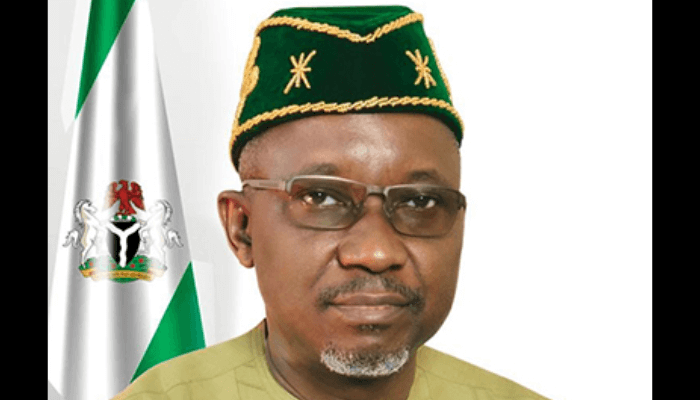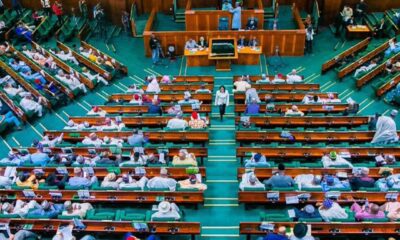Energy
NSE advises FG on increase in electricity tariff

The Nigerian Society of Engineers has expressed its concerns on the implementation of the new electricity tariff recently announced by the Nigerian Electricity Regulatory Commission.
The society added its voice of caution during a media parley with journalists in Abuja and called for transparency and accountability in the implementation procedures of the tariff.
The event was also in commemoration of the NSE President, Margaret Oguntala’s 100 days in office and the milestones achieved.
Controversies have continued to trail the Federal Government’s decision to completely remove subsidy on electricity tariff payable by power consumers in the Band A category, who the NERC said constitute about 15 percent (1.8 million) of the total number of power users across the country.
The NERC announced the hike in the electricity bill at a press briefing in Abuja, adding that those affected would now pay a tariff of N225 per kilowatt-hour, up from the previous rate of N68/kWh, representing about a 240 percent increase. The government declared that the decision took effect from Wednesday last week.
Band A power users are those who get up to 20 hours’ supply of electricity daily and paid about N68/kWh before the implementation of the latest order. But the Nigeria Labour Congress, as well as the Trade Union Congress kicked against the hiked tariff for power users, regardless of the band they belong to.
Other affected stakeholders like the organised private sector have also voiced their displeasure against the new policy.
But speaking during the event on Monday, the President of the Society, Margaret Oguntala, emphasised that the decision to restructure was both necessary and inevitable, but cautioned that the true challenge lies in its implementation.
She added that the regulatory commission must also explain what happens when there are repairs on transmission and distribution lines and its plans to stop energy theft.
He said, “The position of the NSE is all about the customer and that is ensuring accountability and transparency in the whole process. On the tariff, I think it became necessary to restructure somehow but there are questions on what should be the actual format.
“We now have industries, commercial centres, then we have the residential area. But you agree with me that in most settlements you have industries interspersed in commercial centers and residential areas. In a sane society, they are supposed to be separated so the electricity agency is able to appropriate prices to each segment accordingly. Normally the residential consumer’s consumption pattern is somewhat inelastic. But the industry is where the issue is, most of them run three shifts, And they expand at will.
“This is where the impact of the real consumption of power is. And this is where the premium price should be served. The revenue obtained from the industries should then be used to subsidise the cost of low-band residential areas.”
He added, “The position of the NSE is that, inasmuch as this has become inevitable, everything about our power usage and billing has to be transparent. There should be accountability. The customers must be protected. Issues like when somebody is on Band A and someone is getting less than what should be appropriated.
“There should be immediate actions. No getting around any kind of crime, no short-changing any customer. There should be a way in which DISCOs are properly sanctioned. And then what happens during the downtime? When there are repairs, what happens? So that’s another framework that also has to be looked into seriously before.”
According to the president, establishing a framework for immediate sanctions for defaults would guarantee value for money.
“What is the framework for implementing these policies? How effective are they in the long run if there is no sanction for the DISCOs. If an individual is on Band A and then you claim to give him 20 hours and a woman but he doesn’t really get that. So what happens? So we are saying that there must be sanctions for default.
“And I think all these things should have been put together and done properly before implementing a hike. So if the best thing is to get the framework right then we can go ahead and then people will say, yes, we are sure that this will happen. We are sure that we get value for our money,” she added.
Meanwhile, the society has stated that the high standards required by the government to bid for contracts are making indigenous engineers lose road contracts to foreign contractors.
It also added that local contractors are disadvantaged because foreign contractors are heavily funded by their governments while indigenous engineers fund themselves.
“The problem we are having is that the infrastructure development highway in terms of railway, roads and other infrastructure are highly capital intensive. And because of the nature of the capital intensive of this project, most of our local companies and contractors don’t normally meet the necessary requirements which in my opinion are too high by the government.
“We have been trying as engineers. but it will be of greater benefit if some of these requirements are lowered because we have capable engineers in Nigeria,” the president said.
Giving an update on the Ajaokuta Steel Company, NSE commended the president for his efforts in revamping the industry saying that until the steel industries are revamped the country cannot make any headway in steel and technological development.
Energy
We need consultation, public hearing to review PIA regulations – NMDPRA


The Nigerian Midstream and Downstream Petroleum Regulation Authority (NMDPRA) says consultation with stakeholders and public hearing must be conducted to review proposed draft regulations of the Petroleum Industry Act (PIA).
The Authority’s Chief Executive, NMDPRA, Mr Farouk Ahmed, said this on Tuesday in Abuja at its stakeholder’s forum on Midstream Petroleum Host Community Development Trust (MPHCDT) regulation.
Ahmed, represented by Mr Ogbugo Ukoha, Executive Director, Distribution Systems, Storage and Retailing Infrastructure, NMDPRA, said consultation was necessary to provide a platform for harnessing ideas for the HCDT implementation.
“The regulation shall apply only to the Midstream Petroleum Host Communities and a holder of a license that is engaged in the midstream petroleum operation in accordance with Section 318 of the PIA.
“This is a platform for us to deliberate and get feedback on the draft regulations that we publish,” he said.
In an overview, Dr Joseph Tolorunse, the Authority’s Secretary and Legal Adviser, said the NMDPRA may by notice designate the facilities to which these regulations shall apply in accordance with the PIA.
He listed the objectives of the regulations to include the procedure for the establishment and administration of the Trust Fund for the midstream petroleum host communities and to establish parameters to safeguard the Trust Fund.
According to him, the regulation would also establish grievance resolution mechanism for the settlement of disputes between the host communities and licensees.
“The regulation will make general rules for the implementation of the development of the midstream petroleum host communities. It is expected to promote social and economic benefits from petroleum operations to the host communities.
“It will enhance peaceful and harmonious co-existence between the licensees, lessees and the host communities, as well as curtail pipeline vandalism and increase oil production,” he said.
Also speaking, Chairman, House Committee on Host Communities, Dounamene Dekor, said the committee had carried out a series of engagements to understand the current status of implementation of benefits to host communities.
He urged the Authority to expedite action to apply proactive and innovative mechanisms that would ensure the speedy and effective operationalisation of funding of host communities in the sector.
“We have noted some of the challenges that the authorities face in the implementation of the PIA, particularly the omission of the mainstream petroleum operations in Section 240-2 that provides for the funding of HCPs.
“Our committee is ready and already taking necessary legislative steps to address these gaps and challenges,” he assured.
Energy
Ekpo highlights pivotal role of LPG in industrialisation, job creation


Minister of State Petroleum Resources (Gas), Rt. Hon. Ekperikpe Ekpo, has emphasised the strategic importance of investment in the gas sector, saying it was pivotal for driving industrialization, job creation and improvement of the livelihood of the generality of Nigerians.
The Minister stated this at the groundbreaking ceremony of Windek Energy Limited 20,000 Metric Tonnes (MT) Liquefied Petroleum Gas (LPG) depot project at Atabrikang, Aquaha in Ibeno Local Government Area, Akwa Ibom State at the weekend.
He lauded the vision and commitment of Windek Energy Limited in Nigeria’s journey towards energy security and economic prosperity.
A statement by the Spokesman to the Minister, Louis Ibah, which quoted Ekpo, said the project would boost ongoing efforts in ensuring affordable supply of LPG, commonly known as cooking gas, to Nigerians.
“This project marks a significant milestone in Nigeria’s journey towards energy security and economic prosperity. It will enhance access to clean and affordable cooking fuel,” the Minister said.
Ekpo thanked the Akwa Ibom State government for providing the enabling environment for investments to thrive.
He underscored the fact that the establishment of the LPG depot was a testament to the fruitful collaboration between the public and private sectors in the state.
The Gas Minister said the LPG depot project holds immense promises, not only for Akwa Ibom people, but for the entire nation.
Akwa Ibom State Governor, Pastor Umo Eno, in his speech thanked the Minister of State Petroleum Resources Gas, Ekperikpe Ekpo, for facilitating the establishment of the gas plant in the state.
Eno, represented by the Deputy Governor, Senator Akon Eyakenyi, also assured Ekpo and the management of Windek Energy Limited of the security of contractors and staff, as well as the support and collaboration of the host community in bringing the project to fruition.
MD/CEO, Windek Energy Limited, Mrs. Nosa Okunbor, said the project holds the prospect of stimulating economic growth, fostering innovation, and facilitating the emergence of new industries and value chains within Akwa Ibom State.
“This project is not just about enhancing energy infrastructure, but about enhancing life such that our mothers will cook without hazards to their health,” she said.
Energy
Nigeria to produce 4,000 metric tonnes of lithium per day – Shettima


Nigeria is poised to produce 4,000 tonnes of lithium per day, Vice-President Kashim Shettima, said on Monday in Abuja.
Declaring open a two-day roundtable on Sustainable Development of Nigeria’s Mining Sector, Shettima said President Bola Tinubu would soon inaugurate Nigeria‘s largest lithium factory capable of processing 4,000 metric tonnes of lithium per day.
He noted that the Minister of Solid Minerals Development, Dr Dele Alake performed a ground-breaking ceremony for the Lithium factory in Nasarawa in 2023 to produce 18,000 metric tonnes of lithium per day.
Shettima said that more lithium sites were being discovered across the country.
Lithium is a soft, silvery-white alkali metal. It is the least dense solid element and is a critical solid mineral in the global energy transition.
It is currently mined in Nasarawa, Kogi, Kwara, Ekiti and Cross River states.
The vice-president commended Alake for the reforms he had brought to the solid minerals sector particularly his plan to sanitise and reposition the sector to boost Nigeria’s economic profile.
He also commended the Minister for making the sector public and private sectors-driven, adding that the approach would open up the sector for opportunities and fast-track its development.
Shettima was represented at the roundtable by Nasarawa’s Gov. Abdullahi Sule,
Speaking at the event, Alake said the ministry’s seven-point agenda was in line with President Tinubu’s commitment to diversify Nigeria’s economy.
He said that one of the ministry’s critical seven-point agenda was the emphasis placed on local value addition through policies that promoted the processing of raw minerals because of the economic multiplier effects.
He thanked the National Institute for Policy and Strategic Studies (NIPSS) Kuru, near Jos, for organising the summit.
Alake said the development of the solid minerals sector required collective responsibility by all stakeholders to make it a key contributor to the national economy.
He noted that the roundtable would enrich the analysis of the sector and its recommendations would guide the Executive arm of government in decision-making.
“NIPSS deserves commendation for prioritising the mining sector and in appreciating the strategic value the president placed on diversifying the nation’s economy,” he said.
Alake said also that a dual-pronged approach, combining coercive and persuasive methods, was employed to combat illegal mining and to attract foreign direct investment to the sector.
He explained that the persuasive measure entailed formalising artisanal and illegal miners into cooperatives and that 150 of such cooperatives had been registered so far.
The minister said the coercive method involved the establishment of a Mining Marshal Corps deployed across the country to secure mining environments.
He stressed the importance of geoscience data in providing investors with information on the location and quantity of minerals, among others, to help them to “de-risk” investments.
Alake said that a preliminary survey by a German company revealed an estimated 750 billion dollars’ worth of solid minerals in the belly of Nigeria.
Earlier, the Director-General of NIPSS, Prof. Ayo Omotayo, said the roundtable aimed at charting a way forward to deliver a diversified economy and to formulate policies to advance the mining sector.
NIPPS organised the roundtable in collaboration with a consulting firm.
-
capital market2 years ago
Rt.briscoe, FBNH, Others halts negative performance of stock market
-
Finance3 months ago
Court orders Sen. Victor Umeh to repay N136m bank debt to AMCON
-



 Abuja Update2 months ago
Abuja Update2 months agoUNDP, FG partnership needed to achieve inclusion, equity- Minister
-
Abuja Update1 month ago
Banks drive stock market performance with N147bn gain
-



 Business1 week ago
Business1 week agoTingo Group unveils Tingo Electric, Tingo Cola drink at Lagos launch
-



 Health2 weeks ago
Health2 weeks agoCapacity training will reduce migration of health workers- NPHCDA
-
News4 months ago
Oil thieves sponsoring malicious media campaign against Navy – Spokesman
-



 Infotech1 month ago
Infotech1 month agoWorld Backup Day: NITDA urges Nigerians to ensure backup of data
















